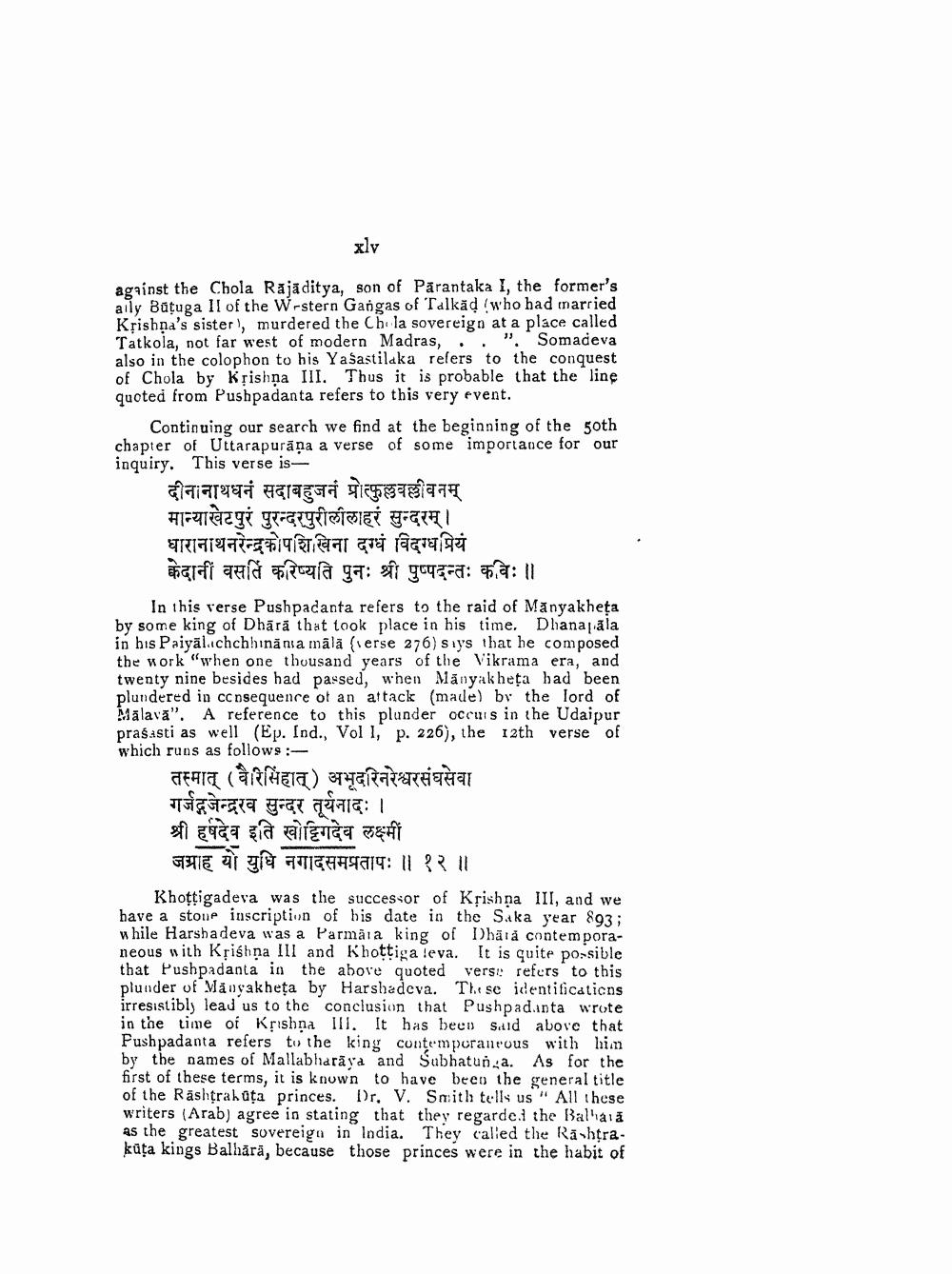________________
xlv
against the Chola Rajaditya, son of Parantaka I, the former's aily Batuga II of the Western Gangas of Talkad (who had married Krishna's sister, murdered the Chela sovereign at a place called Tatkola, not far west of modern Madras, . . ". Somadeva also in the colophon to his Yasastilaka refers to the conquest of Chola by Krishna III. Thus it is probable that the line quoted from Pushpadanta refers to this very event.
Continuing our search we find at the beginning of the 50th chapter of Uttarapurana a verse of some importance for our inquiry. This verse is
दीनानाथधनं सदाबहुजनं प्रोफुलवली वनम् मान्याखेटपुरं पुरन्दरपुरीलीलाहरं सुन्दरम् । धारानाथ नरेन्द्रको पशिखिना दग्धं विदग्ध प्रियं
दान वसतिं करिष्यति पुनः श्री पुष्पदन्तः कविः ॥
In this verse Pushpadanta refers to the raid of Manyakheṭa by some king of Dhara that took place in his time. Dhanapala in his Paiyalachchhinania malā (verse 276) says that he composed the work "when one thousand years of the Vikrama era, and twenty nine besides had passed, when Manyak heṭa had been plundered in consequence of an attack (made) by the lord of Malava". A reference to this plunder occurs in the Udaipur prasasti as well (Ep. Ind., Vol 1, p. 226), the 12th verse of which runs as follows:
तस्मात् (बेरिसिंहात्) अभूदरिनरेश्वरसंघसेवा गजेन्द्ररव सुन्दर सूर्यनादः ।
श्री हर्षदेव इति खोट्टिगदेव लक्ष्मी
जग्राह यो युधि नगादसमप्रतापः ॥ १२ ॥
Khottigadeva was the successor of Krishna III, and we have a stone inscription of his date in the Saka year 893; while Harshadeva was a Parmara king of Dhată contemporaneous with Krishna III and Khoṭṭiga leva. It is quite possible that Pushpadanta in the above quoted verse refers to this plunder of Manyakheta by Harshadeva. These identifications irresistibly lead us to the conclusion that Pushpadanta wrote in the time of Krishna III. It has been said above that Pushpadanta refers to the king contemporaneous with him by the names of Mallabharaya and Subhatunga. As for the first of these terms, it is known to have been the general title of the Rashtrakuta princes. Dr. V. Smith tells us " All these writers (Arab) agree in stating that they regarded the Balhara as the greatest sovereign in India. They called the Rashtrakūta kings Balhārā, because those princes were in the habit of




